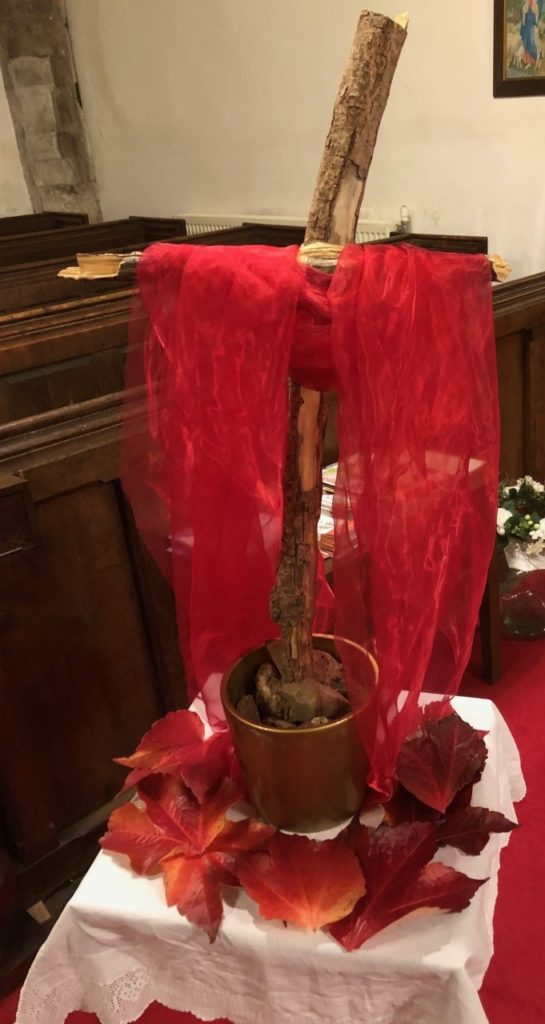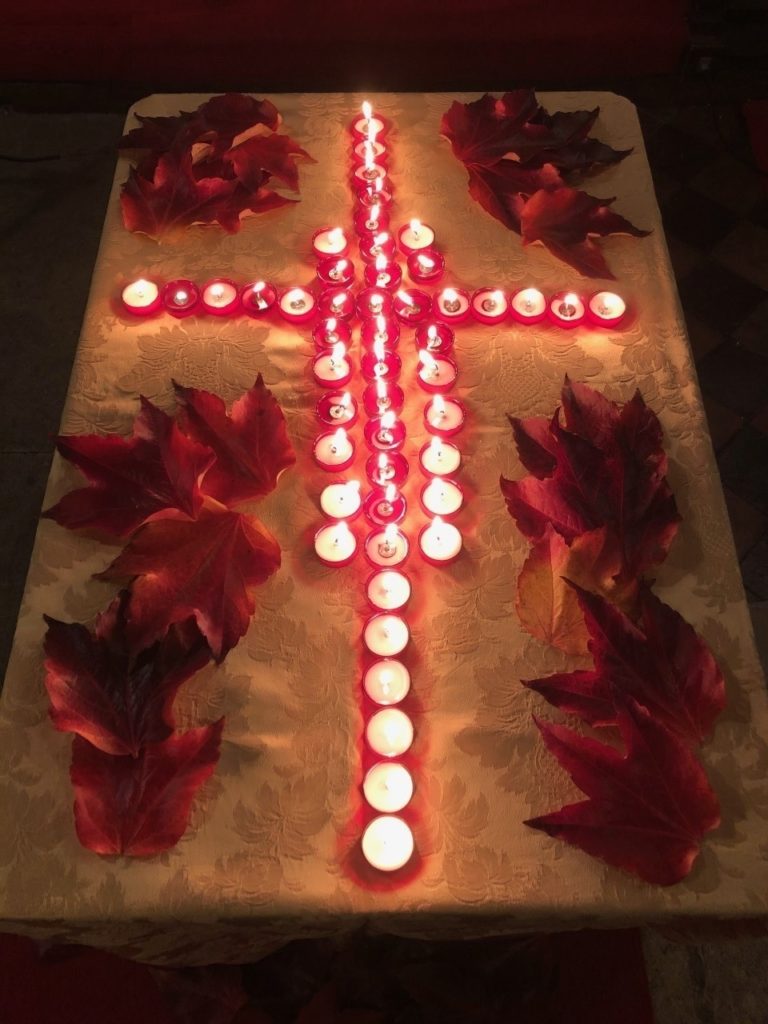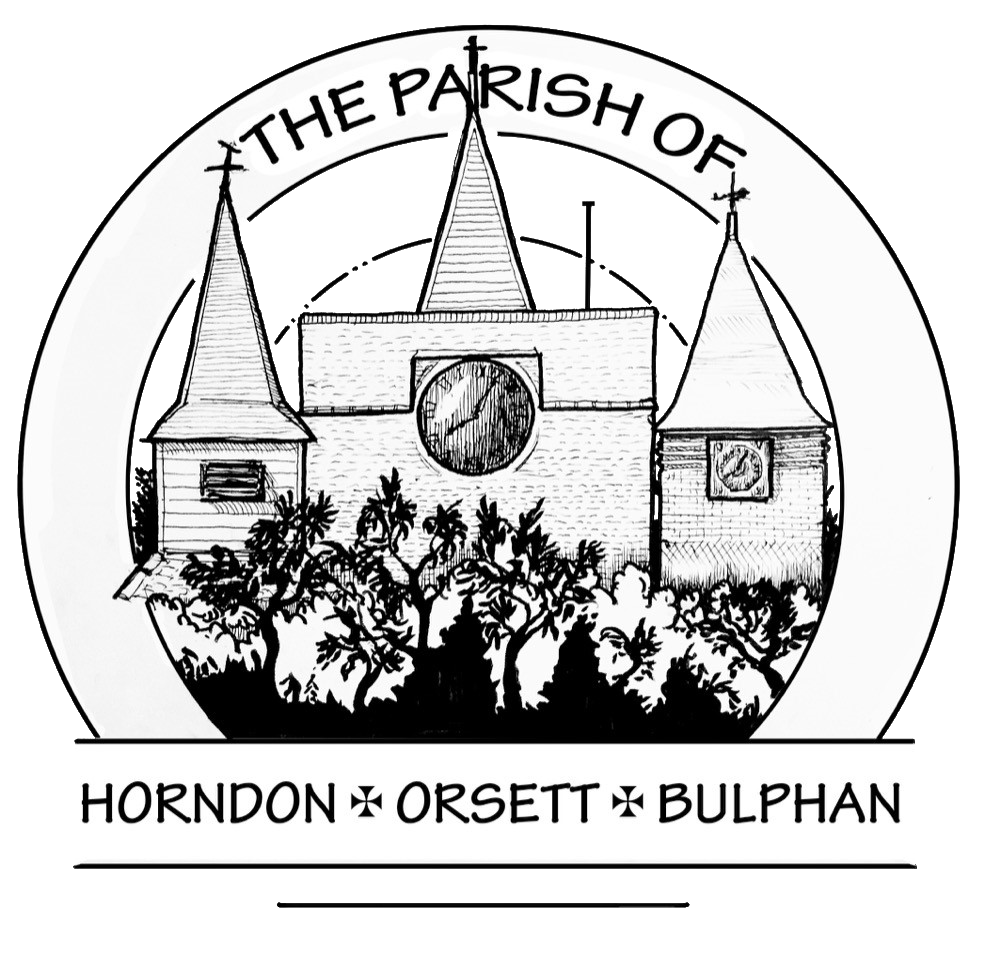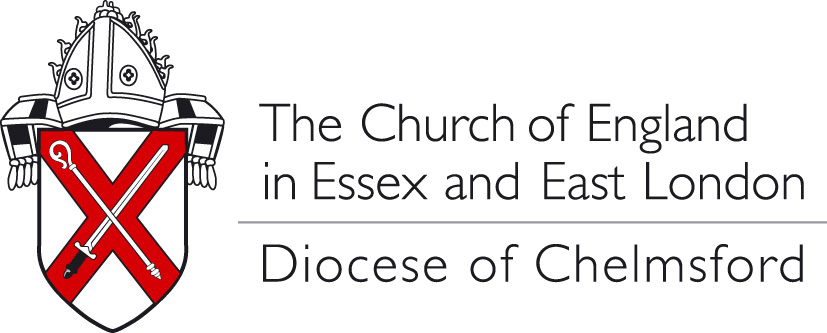A service was held at Orsett Church on the afternoon of Sunday 3rd November to commemorate the lives of those who have died. People were invited to light a candle in and take a snowdrop to plant in memory of a friend or loved one.



|
The Parish of Horndon,Knowing and sharing the love of Jesus in the Church and community. |
 |
A service was held at Orsett Church on the afternoon of Sunday 3rd November to commemorate the lives of those who have died. People were invited to light a candle in and take a snowdrop to plant in memory of a friend or loved one.


November is quite a busy time in the Church calendar.
We have our Commemoration of the Departed service at the beginning of the month, where people are invited to come and light a candle in memory of a loved one who has died. We then have our Remembrance Day services where, again, we remember those who have died, or those who are still active in the service of their country. You are all welcome at those services.
It is so important in many aspects of life to remember. At funeral services we recall the life of the deceased. And in my addresses, I often speak about cherishing the memories of a loved one, but, together, we also ask God to help us to move on. Sometimes people feel a huge sense of guilt at learning to laugh and enjoy life again, when someone close to them has died. The words of the funeral service are written to allow people to grieve, to celebrate the life of the person who has died but also to give people permission to move on, in the knowledge that God is with them. I often find myself reassuring people that it is ok to laugh; that this isn’t disloyal to the friend or relative who had died and that it doesn’t remove the memories or the love for that person; those memories and that love will always be there.
Our church congregations are here due to a long history of traditions being passed on and it is due to faithful Christians of earlier generations that we are still worshipping today. And just as a funeral or memorial service needs to remember a loved one, so our services need to acknowledge that which we have inherited from previous generations. But we also need to give ourselves permission to move on.
When I was ordained, I was commissioned by the Bishop to ‘proclaim the good news of the Gospel afresh for this generation.’ Afresh means finding new ways to engage with people today and, in particular, those who do not know Jesus, because it is a sad fact that we live in an age when church attendance is in decline; serious decline. And as churches we need to do something about this.
In this Benefice we have introduced Messy Church for families, which happens during the week, details of which you will find in this magazine. More recently, I have been working on making our Sunday services more inclusive and accessible. And, after discussion with PCCs, I am hoping to introduce some of these newer services in the New Year.
Moving on, in many different contexts, can be scary, particularly if we have loved, and lived with, someone or something for many years, but the one thing we can be assured of in the context of change of any kind is that we have a God who is unchanging. Whatever happens around us, whether it be in our personal lives or in our church life, God remains there for us, steadfast and reliable.
Faithful one, so unchanging,
ageless one, you’re my rock of peace.
Lord of all I depend on you.
I call out to you, again and again,
I call out to you, again and again.
You are my rock in times of trouble,
you lift me up when I fall down.
All through the storm, your love is the anchor,
my hope is in you alone.
(Brian Doerksen)
With love and prayers,
Sue
This year we decided to celebrate Harvest during the last week of September and to include, in addition to our normal Sunday services, three school services, a harvest supper, harvest entertainments and a Songs of Praise and, as ever, I am grateful to all those who help during Harvest in any way, to make it such a special occasion, with beautifully decorated churches and wonderful feasts. I would also like to thank those who provide food for, and transport to, the Thurrock Foodbank, not just at Harvest time, but throughout the year.
Most of us are fortunate enough to live in comfort and to be able to choose what we eat or drink or wear. At Harvest time we give thanks for God’s provision and, particularly, in our area, we give thanks for those who farm. But, at this time of uncertainty in our country, it is also important that we hold our farming communities in our prayers.
Our stewardship of the creation, with which God has blessed us, is so important. You are probably aware that Bulphan Church recently won Best Kept Churchyard of the Year competition and one of the reasons for this was the addition of the Bug Hotel that Bulphan in Bloom built, as well as the patch of grass, left wild to provide a habitat for insects. BBC Radio Essex came to Bulphan to record a programme in August which was broadcast in September about all of this, and you can hear the podcast on our website at hobnob.org.uk or on the Bulphan Village Bulletin Board on Facebook.
Our Harvest celebrations, and our joy at receiving our certificate at Bulphan, reminded us of our need to care for our creation on a wider scale.
This year we, as a family, went on our annual visit to ‘Greenbelt,’ the Christian based festival with a strong focus on peace and justice and the main theme was ‘climate change’ and our call, as Christians, to work to stop this, for the sake of not only our own descendants, but for the sake of our brothers and sisters who live in much more fragile ecosystems which have been damaged by our over consumption.
In the words of Desmond Tutu:
Who can stop climate change? We can. We have a responsibility to do so that began when God commanded the earliest human inhabitants of the Garden of Eden to ’till it and keep it’. To keep it; not to abuse it, not to destroy it
You may remember that I attempted a plastic free Lent, and I have to confess that it was hard because almost everything at the supermarkets is packaged in plastic. But, as a family, we continue to seek ways to minimise our use of plastic and lower our impact on the environment. You can now buy toothpaste tablets loose, or toothpaste in a glass jar. Shampoo bars are available, eliminating the need for buying the liquid version in plastic containers. And many coffee shops are now giving reductions in drink prices to those who use their own cup.
There are many ways in which we can reduce our carbon footprint and, as Christians, we need not only to be seeking these alternative ways for ourselves as individuals but also to be challenging the institutions with which we have associations, to do the same. This means our places of work too. Sometimes this is not easy but I believe that this is what God requires of us.
I am hoping to do a course on this topic, in the near future, probably during Advent, and so thought it would be fitting to finish my article with the words of a hymn which have been written specially for this course, by Susan Sayers:
We as your people living today,
cry with the aching earth,
knowing that we are warming this home,
home of our saviour’s birth.
Give us the will, show us the way,
help us reflect your grace;
open our hearts, open our lives
help us to heal this place
All that we pledge and all that we choose,
all of our future ways,
take as our humble token of love,
wonder and thankful praise.
With love and prayers, Sue
My husband is in a book group and recently he encouraged them to read the book ‘Frankenstein.’ Some of the book group members were slightly skeptical about this but it provoked some really good conversation.
A friend, who is also in the book group, shared some of her thoughts, saying that ‘Frankenstein’s monster does terrible things but is also a profoundly sad creature, longing for love, friendship, and belonging, and only prompted to acts of cruelty and destruction when these are denied him.’ She went on to suggest that this isn’t too dissimilar from the Gerasene man we recently read about in a Bible passage in church, who is possessed by demons, and who doesn’t obey the normal rules of society, with regard to wearing clothes and living in a house, although we don’t know whether he has done anything very dreadful at all. What we do know, though, is that the local community finds him more than difficult to deal with and, so, on occasion have imprisoned him, chained him and shackled his feet. They, themselves, have ‘demonised’ him. But Jesus treats the man differently even though he greets Jesus angrily. Jesus frees him from his troubles, and restores him to the ordinariness of life, clothed and able to sit in comfort alongside others, about which the locals are very upset. The locals are also, perhaps, somewhat fearful and maybe even disappointed that they, no longer, have a person against whom they could unite.’
My friend, who is a priest, went on to say that she preached to her congregation on this passage and related it to our current political situation sharing that, ‘So much of our current politics has been defined by who or what we are against. Brexit versus Remain. Boris versus the rest. Even in a recent opinion poll, England against, or at least without, Scotland or Northern Ireland.’ And she said that ‘it had crossed her mind to wonder how some people will find a common cause when we are no longer members of the EU, and can blame Europe for what we don’t like…’
We are, of course, concerned for the future of our nation and we want our leader to be someone we can trust and, by the time you read this, our new Prime Minister will have been appointed. But when we are tempted to demonize another person or group of people, by the way we relate to them or by the language we use in describing them, whether it be a politician or person of another faith or culture, or someone living on the streets or a person with a criminal conviction, I believe we are called first to look inwards and consider, in our proposed description of that person or group of particular people, what would we actually be implying about ourselves? It can be so destructive to infer that someone else is less than us – less safe, less trustworthy, less honest, less loveable, less kind – ultimately less worthy of a place in the world. Sometimes it does us good just to pause and ask ourselves, who are our monsters or demons, worldwide, nationally or locally, to recognize this and act upon it as Jesus would…
My friend finished her sermon with the following words:
‘ “Here be monsters” it used to say on old maps. “Here be monsters” might very well be the headlines of some of our papers and news sources. Look a little closer, and we will see beings made in the image of God. ‘
With love and prayers,
Sue
Recently I have started going to the outdoor gym on the Orsett Recreation Ground, for ten minutes a day, as I am conscious that I have been doing very little exercise of late and have begun to get rather unfit. Whenever I have joined the gym in the past I have never managed to keep it up for longer than about a month, and my great plans to ride my bike or walk to places often get thwarted because I always find another job to do, an email to send or a phone call to make.
So, for me, the outdoor gym is ideal because I like being outside, it’s free and what’s even better is it’s only about 100 metres from our front door! As I sit on the gym equipment in the park, I see other people exercising- running or playing cricket, bowls or rounders and that encourages me.
God calls us to look after the physical bodies he has given us. And he also calls us to exercise our spiritual muscles.
Recently the Bishop of Bradwell spoke to the clergy of Thurrock, stressing the importance of four things in our Christian lives: Prayer, Study, Fellowship and Worship.
Prayer is talking to God, but it isn’t just presenting our requests to him, it is about aligning our will with that of our Heavenly Father, so that our lives begin to reflect more of him in what we think, do and say. Of course, none of us are perfect and we all get it wrong and stray off the path at times, but because God loves us, when we say sorry, he welcomes us back and puts us back on track again.
In order to stay close to God and keep on track, it is important that we know what God has to say about things so it is important to study God’s word and read the Bible. There are many different translations of the Bible now, both in traditional and contemporary language, including apps that you can download on your phone. Familiarity with the stories and characters in the Bible can help us both on a day to day basis and serve to sustain when we are going through the tough times.
Similarly, it is important to meet and share fellowship, so that we can encourage, support, and challenge each other in order to grow in faith and build up the life of the church, both within and outside the buildings.
And we need to worship God. Worship means ‘worthship’ and it is important that we give ‘worth’ to God by attending church services, but our worship should also be apparent in our lives. One of my favourite places is Iona in Scotland. In 563AD the Irish monk St. Columba arrived on Iona with a handful of followers. He built his first Celtic church and established a monastic community on the island. He then set about spreading the Christian faith to most of pagan Scotland and northern England. This seat of learning and centre for Christian worship soon became a place of pilgrimage. When you attend an act of worship in the Abbey at Iona, it never has a defined end because it is a reminder that our lives should be a continuation of our worship.
Perhaps, this summer, as you think about putting on your trainers, it’s the time to take a personal check on your spiritual well – being…
With love and prayers,
Sue x